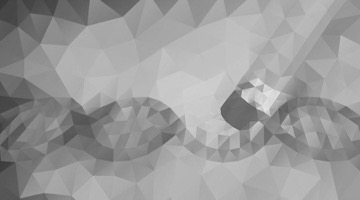EditingAuthenticity

"I wonder some days when human existence will be edited out as altogether too messy."
I recently read about some study suggesting that gene editing doesn't work quite the way I'd thought it does. It's not a simple matter of snipping and pasting. Genes resonate changes more deeply than a simple delete or paste metaphor might suggest. Unanticipated mutations sometimes result. The connections appear to be much more complicated than our present understanding leads us to believe. Our modern day gene splicers might in the future seem no more skilled or insightful than a medieval medicine man does to us today, all leaches and humors and stuff. ©2018 by David A. Schmaltz - all rights reserved
We live in The Age of Editing. Forget about original content, repurposed content reigns now. Cutting and pasting from one use to some other, slickly reformatting along the way, can produce better-looking than original results. The brilliant performance broadcast to entertain me on a weekday night has been massaged in a thousand invisible ways before ever leaving the studio. Live performance seems almost unknown, with even stage shows refined to the point of reflexive inevitability, a choreographed startle response comprised of previously recycled content, scripted rather than expressive. The performing arts seem more like extractive businesses now, with much of the background having been pre-recorded into uniform replication for efficiency's (aka profit's) sake.
Editing is to creating what mechanic-ing is to driving. Both activities must involve creative sparks, but they seem to come from different ends of the spectrum. When I was growing up, the family used to stand around the piano. My older sister would play while everyone else would sing along in whatever way they felt moved to sing along. We were no Mormon Tabernacle Choir, but we seemed plenty and fine for our purposes. Live music meant warts-and-all music. We learned how to appreciate the warts or we would have no music. My dad had the voice of a crooner. The rest of us filled in around the edges, producing a full and satisfying performance every time.
The Muse and I and visiting friend Antoinette were discussing the Disney brand yesterday, best described by their Imagineers' term Modified Authenticity. This term excused creating a Frontierland with no horse shit or whores present, no smoking, either. The Great American Frontier featured plenty of horses, whores, and smoking, but the edited remembrance could not feature any of these without sacrificing its apparent authenticity. Modern minds could hardly be expected to appreciate the authentic rough life. We require it to have been sanitized to satisfy our carefully engineered expectations. Nobody wants to spend their vacation scraping horse shit off junior's flip-flops.
I only lightly edit my little essays, mostly for spelling and gross usage errors. I rarely reorder any story to improve the impact. I've been picking at re-editing my last year's worth of essays, seven hundred some pages, into a perhaps more coherent "book" form. I'm challenged. I know the world I'm dressing them up to encounter, one swept clean of many traditional surface imperfections. A world that still expects everything to be planned and neat and tidy, with rough edges sanded, painted, waxed, and perfumed so as to not importune passers by. My life's not anything like that, though I can tune in to innumerable broadcasts insisting that it really should be like that. I do not characterize myself as an editor, but as a writer, a necessarily imperfect one, and one ever less interested in even the appearance of perfection.
I think of myself standing around the old family upright, singing my heart out, but without my dad's fine baritone backing me up. No reverb added for depth. No tremolo added for dramatic tension. Just words falling onto paper, thought draining toward the edge of this time. I rhyme sometimes for sheer joy. I wish the world was less interested in tidiness, in Modified Authenticity. I wonder some days when human existence will be edited out as altogether too messy. I wonder if human expression can even compete, or if it really even wants to compete anymore.


